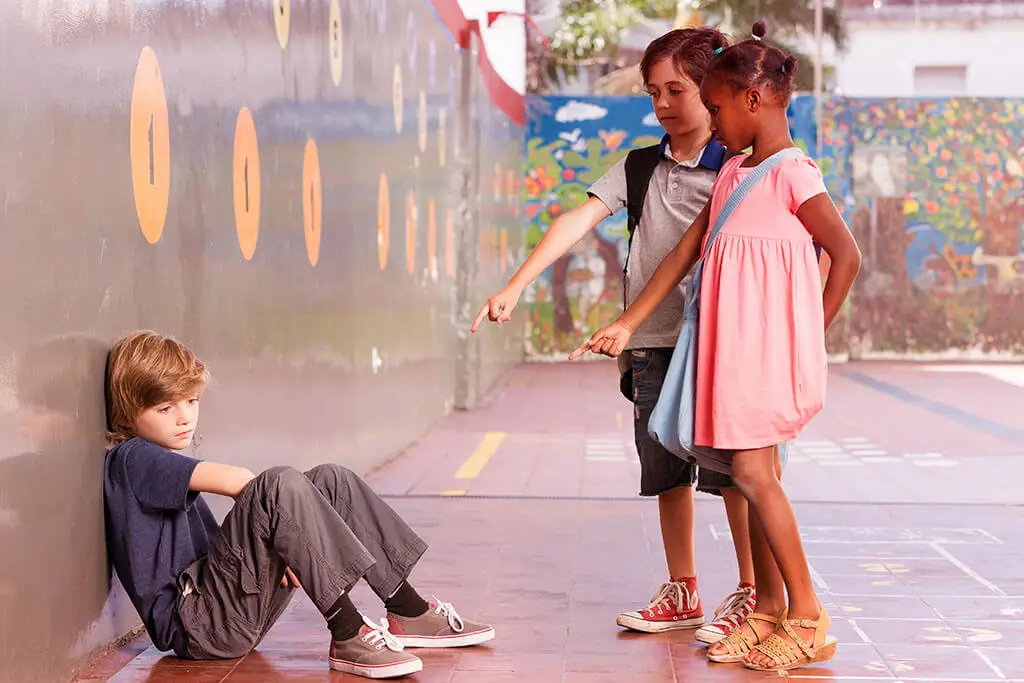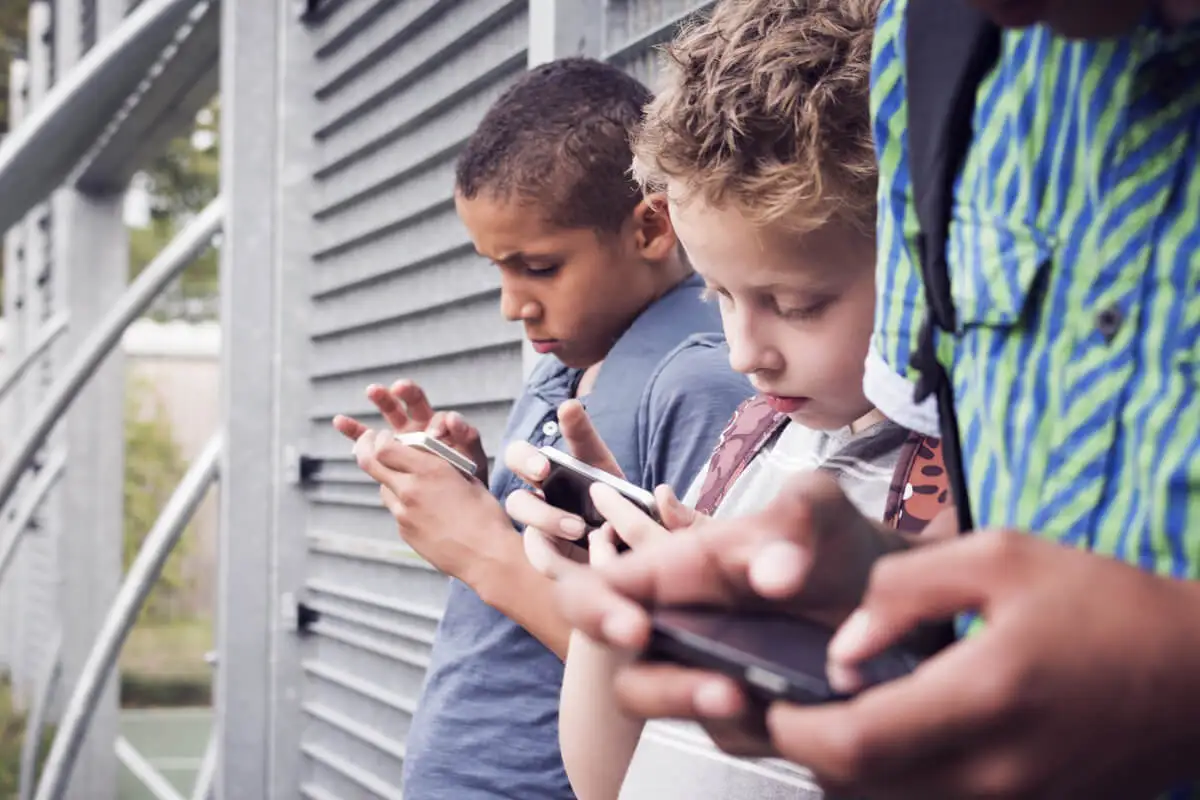Squid Game: A Threat to Mental Health?


Written and verified by the doctor Leonardo Biolatto
Squid Game is Netflix’s international sensation, but concerns have been raised about possible mental health side effects. Above all, medical, psychological and social welfare organizations warn that children may be susceptible to the plot and imagery of this show.
Part of its global success is attributed to the timing of its release. With fewer restrictions following the confinement of the COVID-19 pandemic, the series brings up the despair of confusing times. It’s not hard to feel the same way the protagonists feel when events beyond their reach put them in extreme situations.
Similarly, Squid Game functions as a critique and satire of the quiz game television system typical of Japan, for example, or Korea. The script may have been conceived with a social message in mind, but it has transcended it into entertainment that doesn’t seem harmless to everyone.
The violence in Squid Game
This Netflix series has violent content. This is evidenced by its rating on the platform that places it as not suitable for children under 17. However, the more than 111 million accounts watching it during the first month of its debut shows that children are surely watching it.
Similarly, the emergence of viral challenges on social networks like Instagram and TikTok, with teenagers emulating scenes from the series, is further evidence of its penetration in this age group. It was perhaps this viral content that alerted different medical and social organizations to the side effects of Squid Game.
The website Common Sense Media considers that the audiovisual product shouldn’t be watched by children under 16 years of age. In its description, it clarifies that there’s extreme violence in the episodes. Interestingly, the same portal allows users to give their opinion on whether they agree or disagree with this rating. Currently, parents have said that it should be for those over 17, while children suggest that it should be for those over 14.
It’s possible that one reason for the different views, despite the explicit violence, lies in the cognitive dissonance that the show creates. Sadistic scenes and scenes of death are framed as children’s games. This is striking to the viewer’s brain, which wants to know how these situations are resolved.
Cognitive dissonance is like a state of discomfort in the mind. We perceived two such scenes, and yet the children’s games don’t contain the death scenes contained in the show.
This is how the side effects of Squid Game are being associated, above all, with mental health. For children, it’s more difficult to interpret the cognitive dissonance, which makes it easier for them to misinterpret the plot.
Read more: Most Frequent Reasons Why Teenagers Visit a Doctor
Reactions in the world
Different governmental and private organizations have reacted to the findings of certain side effects on mental health due to watching Squid Game. Also, movements led by parents have made the authorities sit up and take notice.
Schools have taken a leading role in this scenario. They turn out to be the privileged areas where they can give recommendations to adults, discuss some relevant topics with children, and detect violent behavior.
A school in the state of Atlanta, in the United States, sent a statement to parents to inform them that inside the establishment it was forbidden to talk about or discuss Squid Game. Similarly, they don’t allow students to reenact scenes from the series at recess.
Another school, this time in Belgium and the state, also contacted parents about this. After noticing that, in the playground, several students were reenacting scenes from the Netflix show, they asked the children’s parents not to let them watch the series. According to them, it wouldn’t be suitable for children under the age of 18.
A similar approach is also being taken in England. An educational council in the south of the country recommends that children should be prevented from watching scenes from Squid Game. The Australian organization ReachOut, which focuses on youth mental health, has also given the same warning and made the same recommendation.

Health side effects of series such as Squid Game
No scientific study has analyzed the health side effects of Squid Game. However, sociological analyses and research have been carried out to determine the relationship between violence seen in audiovisual form and the expression of violence in reality.
Is it possible that watching violent series and programs leads to subsequent aggression in real life? According to a study carried out in Portugal, television violence is a factor that contributes to school students expressing physical aggression towards others, as long as they have a genuine interest in the characters in the story they’re watching.
Of course, this isn’t an immediate consequence, as young people don’t become violent just by watching a series. As the experts Huesmann and Taylor point out, there are moderating factors that determine how a person assimilates what they see and converts it into behavior.
According to these authors, the violence seen in a TV show has repercussions in everyday life through two clear mechanisms. One of these is attempted suicide, which is more prevalent among adolescents; the other is the performing of violent scenes as a game or as an imitation. The latter is what schools in Belgium, the United States, and England have reported.
Desensitization to violence
When violence is naturalized, that is, when it becomes an everyday occurrence that becomes part of the norm, then it isn’t condemned. For younger people, this has a clear component that comes from advertising, social networks, and the consumption of entertainment products.
With their personality still being formed, it’s difficult for adolescents to know how to discriminate between right and wrong, just as it’s difficult for them to separate the real world from the fictional one. In the short term, the possibility of imitating what they see in a series is presented as an opportunity to test their own limits.
According to what has been published by a psychological study group from the United Kingdom, violence in mass media generates excitement, especially in younger boys. And this arousal is greater the more they have been exposed to other audiovisual forms of violence before.

The role of peer pressure
For children and young people, the effect of peer pressure is no less important than the audiovisual products they watch. The mental health side effects of Squid Game are associated with the need to belong and not be rejected.
If a classmate or friend is watching the Netflix series and comments on something from the show, the other person also wants to watch it so as not to feel left out. And if the first one invites them to imitate a scene, the second one will tend to accept the invitation so they aren’t rejected.
In a vicious circle, the negative influences of audiovisual series are reproduced and spread because there’s a need in adolescents to be accepted. The spread of imitation games at recess has its basis in this behavior.
Read also: How to Help Children Cope With Peer Pressure
The social side effects of Squid Game appear in young people
The greatest social danger of the naturalization of violence is the lack of empathy. If it seems normal and acceptable to mistreat others for private gain, then the social fabric is destroyed.
Young people are more susceptible to acquiring these imitated behaviors because they don’t fully understand the difference between fiction and reality. This is where parental guidance becomes indispensable. The side effects of the series Squid Game wouldn’t be suffered if adults took the time to get alongside and talk to their children.
Reducing violence among adolescents doesn’t depend so much on banning a Netflix series, but on exercising the adult role in education. Children under the age of 17-18 shouldn’t watch it and that is clear; they wouldn’t understand the depth of the arguments. However, if they watch it anyway, perhaps on the sly, then they should be taught to understand it.
All cited sources were thoroughly reviewed by our team to ensure their quality, reliability, currency, and validity. The bibliography of this article was considered reliable and of academic or scientific accuracy.
- Matos AP, Ferreira JA, Haase RF. Television and aggression: a test of a mediated model with a sample of Portuguese students. J Soc Psychol. 2012 Jan-Feb;152(1):75-91. doi: 10.1080/00224545.2011.555645. PMID: 22308762.
- Huesmann LR, Taylor LD. The role of media violence in violent behavior. Annu Rev Public Health. 2006;27:393-415. doi: 10.1146/annurev.publhealth.26.021304.144640. PMID: 16533123.
- Nicklin LL, Swain E, Lloyd J. Reactions to Unsolicited Violent, and Sexual, Explicit Media Content Shared over Social Media: Gender Differences and Links with Prior Exposure. Int J Environ Res Public Health. 2020 Jun 16;17(12):4296. doi: 10.3390/ijerph17124296. PMID: 32560142; PMCID: PMC7345319.
- Kousha M, Mehdizadeh Tehrani S. Normative life events and PTSD in children: how easy stress can affect children’s brain. Acta Med Iran. 2013;51(1):47-51. PMID: 23456584.
- Mrug S, Madan A, Cook EW 3rd, Wright RA. Emotional and physiological desensitization to real-life and movie violence. J Youth Adolesc. 2015 May;44(5):1092-108. doi: 10.1007/s10964-014-0202-z. Epub 2014 Oct 19. PMID: 25326900; PMCID: PMC4393354.
This text is provided for informational purposes only and does not replace consultation with a professional. If in doubt, consult your specialist.








